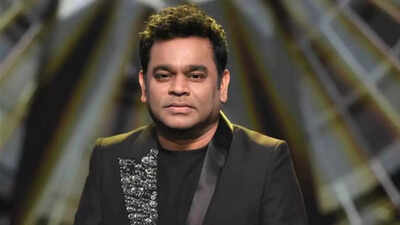AR Rahman was actually born as Dileep Kumar Rajagopala in Madras. The iconic composer then converted to Sufism. He was also suggested this name ‘Rahman’ by a Hindu astrologer. The composer has never shied away from opening up on his faith and in a recent interview, he has spoken at length on converting to Sufism and how he has studied all religions and respects them. Rahman said during a chat with Nikhil Kamath on his podcast, “I am a fan of all the religions, and I have studied Islam, Hinduism and Christianity. My one problem is killing or harming other people in the name of religion. I love to entertain, and when I perform, I feel like it’s a shrine, and we are all enjoying the fruits of oneness. People of different religions, who speak different languages, all come together there.”
Opening up on why he was drawn towards Sufism, Rahman said, “Sufism is like dying before dying. There are screens which will make you self-reflect, and in order to remove those screens, you have to perish. Lust, greed, jealousy, or judgementalism all need to die. Your ego is gone, and then you become transparent like God.”He expressed that what he loves is how these religions are different but there’s also a commonality in them. He said. “The commonality of faith is what I love. We might be following different religions, but the sincerity of the faith is what is measured. That’s what makes us do the good things. Humanity is benefited by that. We all need to be spiritually rich, because when spiritual richness comes, material richness follows.”The composer has reflected on his spiritual evolution before as well. In his biography, ‘AR Rahman: The Spirit of Music’ by Naseer Munni Kabir, he recalled how he and his mother embraced Sufism. He noted, “Nobody is forced to convert to the path of Sufism. You only follow if it comes from your heart… I was reminded of what Jesus Christ, peace be upon Him, once said: ‘I wish that you were cold and hot. So because you are lukewarm, and neither hot nor cold, I will spit you out of my mouth.”He went on to add that this teaching helped him understand the importance of choosing a clear spiritual direction. As he put it, “These words taught me that it is better to choose one path. The Sufi path spiritually lifted both my mother and me, and we felt it was the best path for us, so we embraced Sufi Islam. No one around us cared about the conversion. We were musicians, and that allowed us greater social freedom.”



